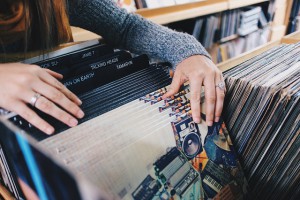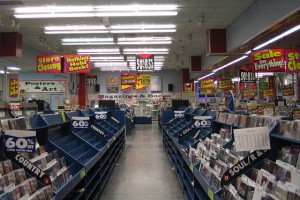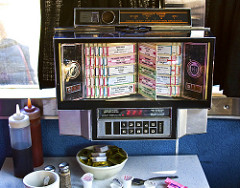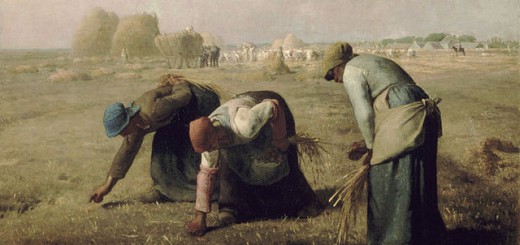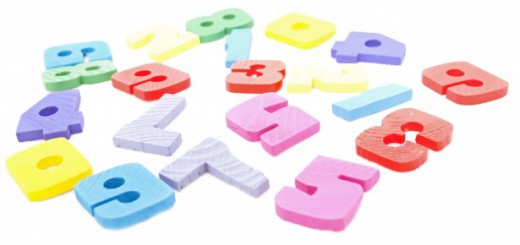If you were born in the late 80s or after, depending on where you live, you may not have ever been in a record store. I don’t mean the CD aisle of Walmart. I’m talking about a place devoted to music, with tons of options, knowledgeable sales people, and the option to listen to stuff. It’s a place to meet and hang out. A hipper Starbucks. Or at least it was.
So what happened? Well, MP3s, Napster, Limewire and then iTunes. The problem was record stores thought they were in the business of selling physical items with songs on them. And the companies packaging music stubbornly believed they had a right to live, that this was the way people
should buy music, and they tried to stay financially afloat by cutting costs as much as possible, making CD cases, the cover and notes (if any) essentially disposable. In their defensive measures they contributed to their own suffering. If they had been more innovative in packaging and included materials (books, posters, pins, patches, whatever) with the CDs, they may have survived.
Now we have no Tower Records. There are few little record shops, the types that specialize in different styles of music. If you’re not on iTunes you can buy music elsewhere, but some fundamental things are missing from what record stores had. Notably, there’s no community.
Community is a collection of people around specific interests. Being validated by a community for your helpfulness and knowledge makes you an influencer. A community develops ways to onboard new members, to have forums for discussion to evaluate and recommend.
There are innumerable informal music communities where people share what they’re listening to and decide if they want it or not. Think hanging out with friends and saying “hey, listen to this.” But if you wanted to go somewhere with massive selections, where you could read up easily, be advised by other people, and do it in a social, retail setting, you’d be largely out of luck.
A lot of retail has ignored the powers of technology to develop relationships with their community, and they treat every customer, from those wandering off the street to repeat customers spending thousands a year alike. Retail should leverage their loyalty programs, use CRM, and treat customers like they care about them while they are in the store. Know them and what they like and don’t like, what they’ve told you from purchases and questions. Communicate with them even when they’re not in the store, and not in a generic, mailer way. Send out segmented messages. Call individual people to let them know something came out from a band they really love. If you listen and research and use your data you can figure out who big spenders and influencers are and get their loyalty by just including them. Let them know what’s going on before everyone else.
Here’s how I see a modern record store. Couches, tables, beverages and snacks. Nice bathrooms, wifi and outlets. Diner style tables with mini jukeboxes where you can sample music with friends. Music related products (books, posters, headphones, speakers, etc). And aisles with things that look like old school records. Scan the barcode, listen to sample tracks. Scan the barcode to buy it and download.
Knowledgeable sales people are available to lecture on the nuances of various genres of music. Clubs meet regularly for people to hangout and learn and buy about different bands and styles.
